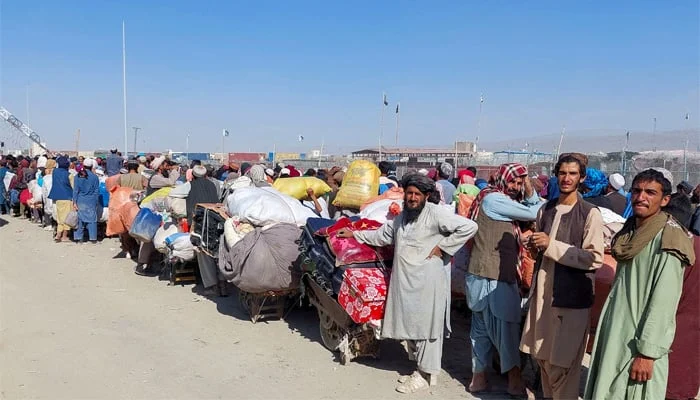
Interior Ministry Reports Over 100,000 Afghans Departed Pakistan in April Amid Ongoing Repatriation Efforts
In April 2025, Pakistan’s Interior Ministry reported that more than 100,000 Afghan nationals left the country as part of the government’s continued efforts to repatriate undocumented foreigners. This marks a significant development in Pakistan’s broader initiative to expel illegal foreign residents, primarily targeting Afghan nationals who lack proper documentation.
Background of the Repatriation Initiative
The repatriation drive, officially termed the Illegal Foreigners Repatriation Program (IFRP), commenced in November 2023. Initially, the program focused on undocumented foreigners residing in Pakistan. However, in early 2025, the government extended the initiative to include holders of Afghan Citizen Cards (ACC), which had previously granted certain privileges to Afghan nationals. The Interior Ministry issued a directive advising all ACC holders to depart voluntarily by March 31, 2025, with deportations commencing on April 1 for those who failed to comply .
April’s Repatriation Statistics
According to official data, over 100,000 Afghan nationals returned to Afghanistan in April alone. This brings the total number of repatriated Afghans to over 400,000 since the inception of the crackdown . The majority of these individuals utilized the Torkham and Spin Boldak border crossings to return to their homeland.
Government’s Position and Humanitarian Measures
The Pakistani government has emphasized that the repatriation process is conducted in a manner that respects the dignity and rights of the returnees. Authorities have assured that no mistreatment occurs during the deportation process and have made arrangements for food and healthcare for returning foreigners . Additionally, the government has highlighted that individuals residing in Pakistan are required to fulfill all legal formalities and abide by the country’s constitution.
International Reactions and Diplomatic Engagements
The mass repatriation has elicited responses from various international stakeholders. The United Nations High Commissioner for Refugees (UNHCR) has expressed concern over the potential humanitarian implications of the large-scale deportations. In response, Pakistan has urged the Afghan Taliban government to create an environment conducive to the dignified return of their nationals.
On the diplomatic front, Pakistan’s Deputy Prime Minister and Foreign Minister, Ishaq Dar, is scheduled to visit Kabul to discuss bilateral cooperation, including the repatriation of Afghan nationals. This visit aims to address key topics such as transit trade and the repatriation process, with a focus on ensuring the rights and welfare of the returning individuals .
Challenges and Future Outlook
Despite the government’s assurances, the repatriation efforts have faced challenges. Human rights organizations have raised concerns about the treatment of Afghan nationals during the deportation process. Furthermore, the large-scale return of refugees poses significant challenges for Afghanistan, which is already grappling with economic difficulties and limited resources.
Looking ahead, Pakistan has announced plans to expel an additional 3 million Afghans by the end of 2025. This ambitious target underscores the government’s commitment to addressing the issue of undocumented foreign nationals. However, the success of these efforts will depend on the cooperation of all stakeholders, including the Afghan government, international organizations, and the affected individuals themselves .
Conclusion
The departure of over 100,000 Afghan nationals from Pakistan in April 2025 marks a significant milestone in the country’s ongoing repatriation efforts. While the government maintains that the process is conducted with respect for the rights and dignity of the returnees, challenges remain in ensuring a smooth transition for all involved. Continued diplomatic engagement and cooperation will be essential in addressing the complexities of this issue and fostering a sustainable solution for Afghan nationals in the region.







